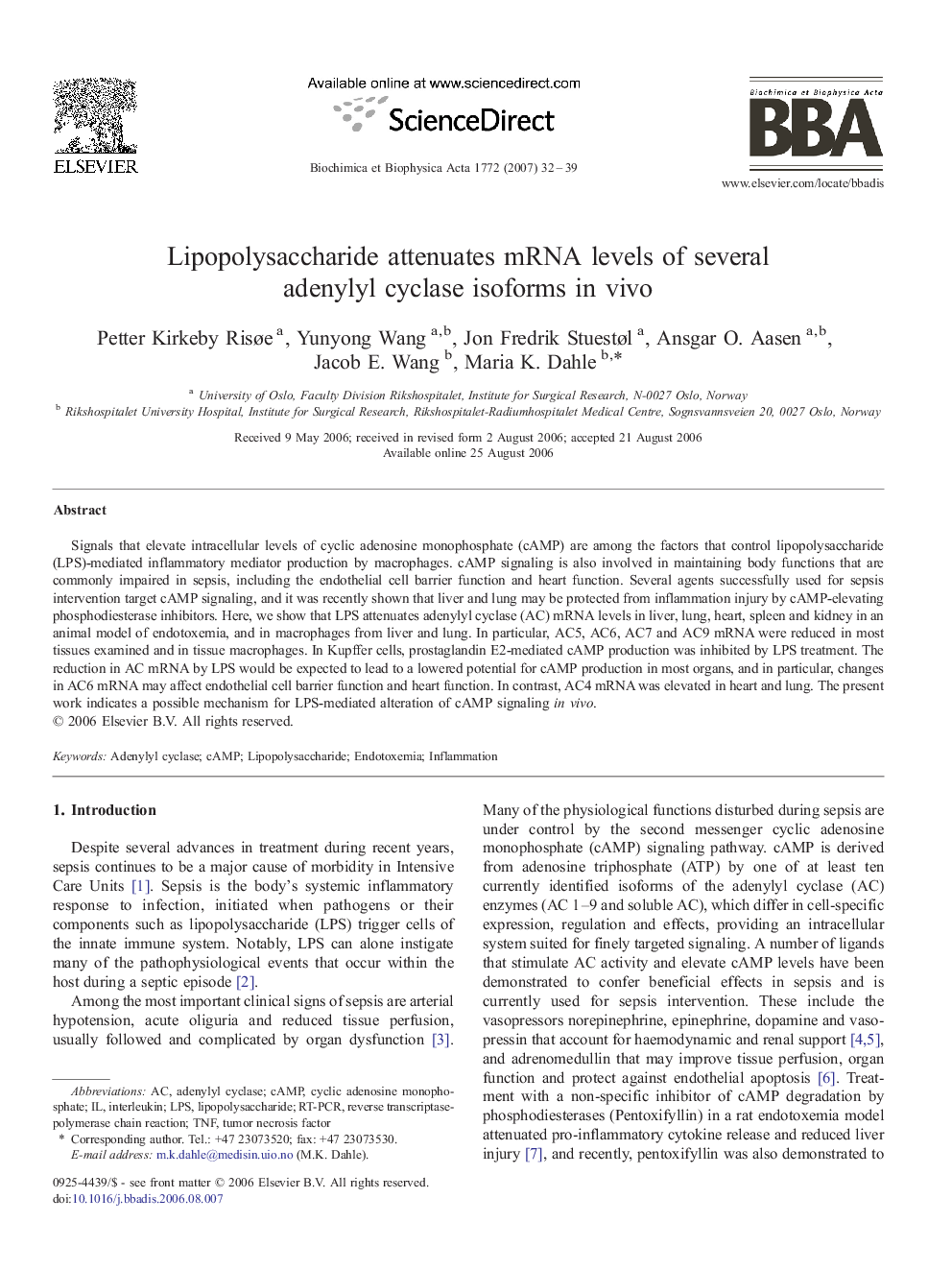| Article ID | Journal | Published Year | Pages | File Type |
|---|---|---|---|---|
| 1905906 | Biochimica et Biophysica Acta (BBA) - Molecular Basis of Disease | 2007 | 8 Pages |
Signals that elevate intracellular levels of cyclic adenosine monophosphate (cAMP) are among the factors that control lipopolysaccharide (LPS)-mediated inflammatory mediator production by macrophages. cAMP signaling is also involved in maintaining body functions that are commonly impaired in sepsis, including the endothelial cell barrier function and heart function. Several agents successfully used for sepsis intervention target cAMP signaling, and it was recently shown that liver and lung may be protected from inflammation injury by cAMP-elevating phosphodiesterase inhibitors. Here, we show that LPS attenuates adenylyl cyclase (AC) mRNA levels in liver, lung, heart, spleen and kidney in an animal model of endotoxemia, and in macrophages from liver and lung. In particular, AC5, AC6, AC7 and AC9 mRNA were reduced in most tissues examined and in tissue macrophages. In Kupffer cells, prostaglandin E2-mediated cAMP production was inhibited by LPS treatment. The reduction in AC mRNA by LPS would be expected to lead to a lowered potential for cAMP production in most organs, and in particular, changes in AC6 mRNA may affect endothelial cell barrier function and heart function. In contrast, AC4 mRNA was elevated in heart and lung. The present work indicates a possible mechanism for LPS-mediated alteration of cAMP signaling in vivo.
